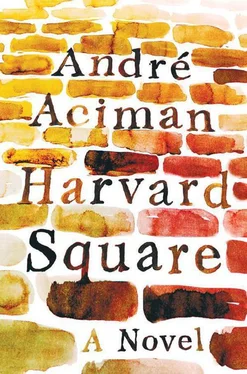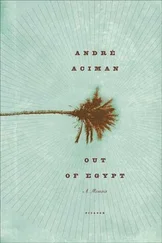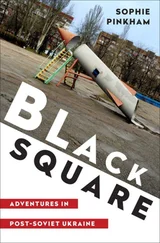Sometimes, to quell the rising storm between the two, the owner of the place, a Palestinian, would put on an album of Arabic songs, usually Om Kalsoum. Within seconds, the battle of wits came to a complete standstill, and the plangent voice of the Egyptian diva would fill the hushed four corners of Café Algiers. “Play it louder, play it louder, for the love of God,” Kalaj would say. It was always the same song. “Enta omri,” you are my life. If Kalaj was having breakfast with a woman in the morning, he’d interrupt whatever they were saying and translate the lyrics word for word in his broken English—“your eyes brought me back to our long-gone days”—pointing to his eyes, then to her eyes. “And taught me to regret the past and its wounds”—and with the palm of his hand draw a gesture signifying the sweeping, painful passage of time.
If we were together having coffee and a croissant, he’d translate the words for me as well, word for word, though I remembered enough Arabic from my childhood in Egypt not to miss the general tenor of the song. If he was sitting by himself and the song was being played, he’d hold his cup by its rim in midair and, caught in a spell, murmur the diva’s words aloud and then translate them back to himself in French.
It was not always easy to step out of Café Algiers after such an interlude in our imaginary Mediterranean café by the beach and walk over to Harvard, which was right across the street. But, on those torrid mornings with the blinding sun in our eyes, it seemed constellations and light-years away.
I still remember the morning smell of bleach and lye with which Zeinab would mop up the floor of Café Algiers while the chairs sat upturned on the café’s minuscule tables. The place was closed to customers, but they’d let a few of us in — regulars who spoke Arabic and French — and allowed us to wait for the coffee to brew. One look at the poster of Tipaza and your body ached for sea water and beach rituals you didn’t even know you’d stopped remembering. All of Café Algiers took me back to Alexandria, the way it took Kalaj back to Tunis, and the Algerian to Oran. Perhaps each one of us would stop by Café Algiers every day to pick up the person we’d left behind in North Africa, each working things back to that point where life must have taken a wrong turn, each as though trying to put time on splints until the fracture and the cracks and the dislocations were healed and the bone finally fused. Sheltered from the morning sun and wrapped in the strong scent of coffee and of cleaning fluids, each found his way back to his mother.
Mornings, however, exerted a second-tier magic all their own because they reminded the three of us of Paris, our halfway home, and of French cafés we’d known at dawn, when waiters are busy setting up the place and exchange pleasantries with the street sweeper, the newspaper vendor, the delivery boys, the baker next door, everyone dropping in for a quick coffee before heading out to work. Kalaj had gotten into the habit of a very early coffee in the cafés of rue Mouffetard. Drop in, greet the regulars, speak, snipe, gripe, and take up this morning where you left off late last night.
At Café Algiers he was almost always the first to arrive in the morning. Like Che Guevara, he’d appear wearing his beret, his pointed beard with the drooping mustache, and the cocksure swagger of someone who has just planted dynamite all over Cambridge and couldn’t wait to trigger the fuse, but not before coffee and a croissant. He didn’t like to speak in the morning. Café Algiers was his first stop, a transitional place where he’d step into the world as he’d known it all of his life and from which, after coffee, he’d emerge and learn all over again how to take in this strange New World he’d managed to get himself shipped to. Sometimes, before even removing his jacket, he’d head behind the tiny counter, pick up a saucer, and help himself to one of the fresh croissants that had just been delivered that morning. He’d look up at Zeinab, brandish the croissant on a saucer, and give her a nod, signifying, I’m paying for it, so don’t even think of not putting it on my check . She would nod back, meaning, I saw, I understood, I would have loved to, but the boss is here anyway, so no favors today . A few sharp shakes of his head meant, I never asked for favors, not now, not ever, so don’t pretend otherwise, I know your boss is here . She would shrug: I couldn’t care less what you think . One more questioning nod from Kalaj: When is coffee ready? Another shrug meant: I’ve only got two hands, you know . A return glance from him was clearly meant to mollify her: I know you work hard; I work hard too . Shrug. Bad morning? Very bad morning . Between them, and in good Middle Eastern fashion, no day was good.
Later in the afternoon, when he’d return to Café Algiers, he was a different man. He was back in his element, all pumped up and ready to fire — this was home base, and the night was young.
I would eventually find that Kalaj was gifted with 360-degree eyesight. He always knew when someone was watching, or eavesdropping, or, like me that first time, simply wondering. He’d sit in his center position — what his Algerian nemesis called Kalaj’s état major , his headquarters — and would instantly recognize people by their footsteps. If he hadn’t turned to say hello when he heard your footsteps, it was because he wanted to avoid showing he was aware of you. Or because he was too busy talking to someone else. Or because he never wished to see your face again. He’d scope a situation in a millisecond. He’d walk into a crowded bar and moments later say: “Let’s leave.” “Why?” I’d ask. “There are no women here.” “How about those two over there?” I’d say, pointing out two beautiful women he’d obviously overlooked. “The one in black is crazy.” “How can you tell?” “I know, that’s how I can tell,” he’d repeat, impatience, sarcasm, exasperation bristling in his voice, “I can always tell— oké ? Let’s. Just. Go.”
Or with his back still turned to the door, he’d say, “Don’t look now, but there’s someone making his way toward us.” When had he seen him walk in? How had he noticed? And where does one pick up such skills? “He’ll buy me coffee, then a pastry, and then he’ll want to tag along.” Of course, no sooner had he told me not to look than I’d already turned my head to see who it was. “Didn’t you hear me say don’t look now ?” “Yes, I heard you say don’t look now .” “Then why did you look?” All I could do was apologize, say I’d always been slow on the uptake. “But this slow?”
Sometimes there’d be a woman he was trying to avoid. Big embrace if he couldn’t duck in time, big introductions, kiss-kiss, and kiss-kiss again, then immediately turning to me, “Is he here?” “Is who here?” I’d ask ingenuously. “The immigration lawyer we’re supposed to meet?” he’d hiss, brandishing his stiletto grin, ready to hack at me for lacking the remotest sense of man-to-man complicity. It would take me a moment to understand. “No,” I’d reply, “he said he’d be waiting at the café across the street.” “Waiting at the café across the street, waiting at the café across the street,” he mumbled under his breath as we’d rush out of Café Algiers. “How long must it take you to come up with something as stupid as waiting at the café across the street ?” “Why was it stupid?” I’d protest, knowing that it was completely stupid. “Because she could have easily asked to join us!” Never had I felt so useless and callow in ordinary day-to-day affairs. I was a flea tagging after a titan.
Читать дальше












